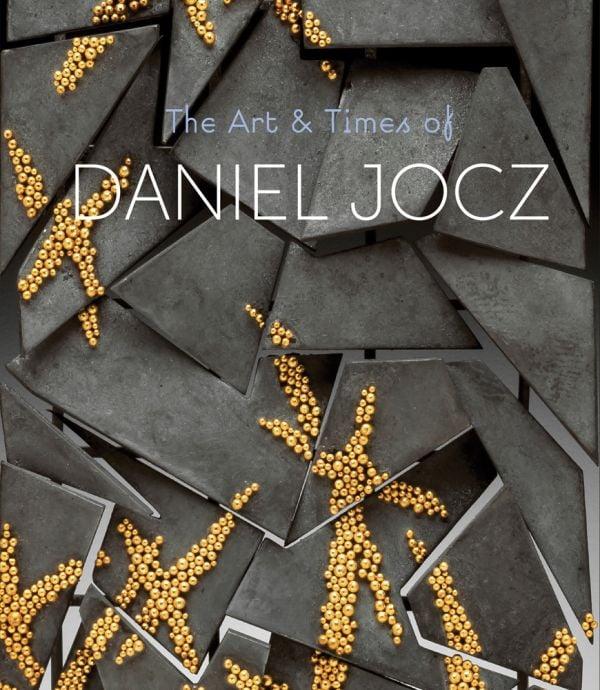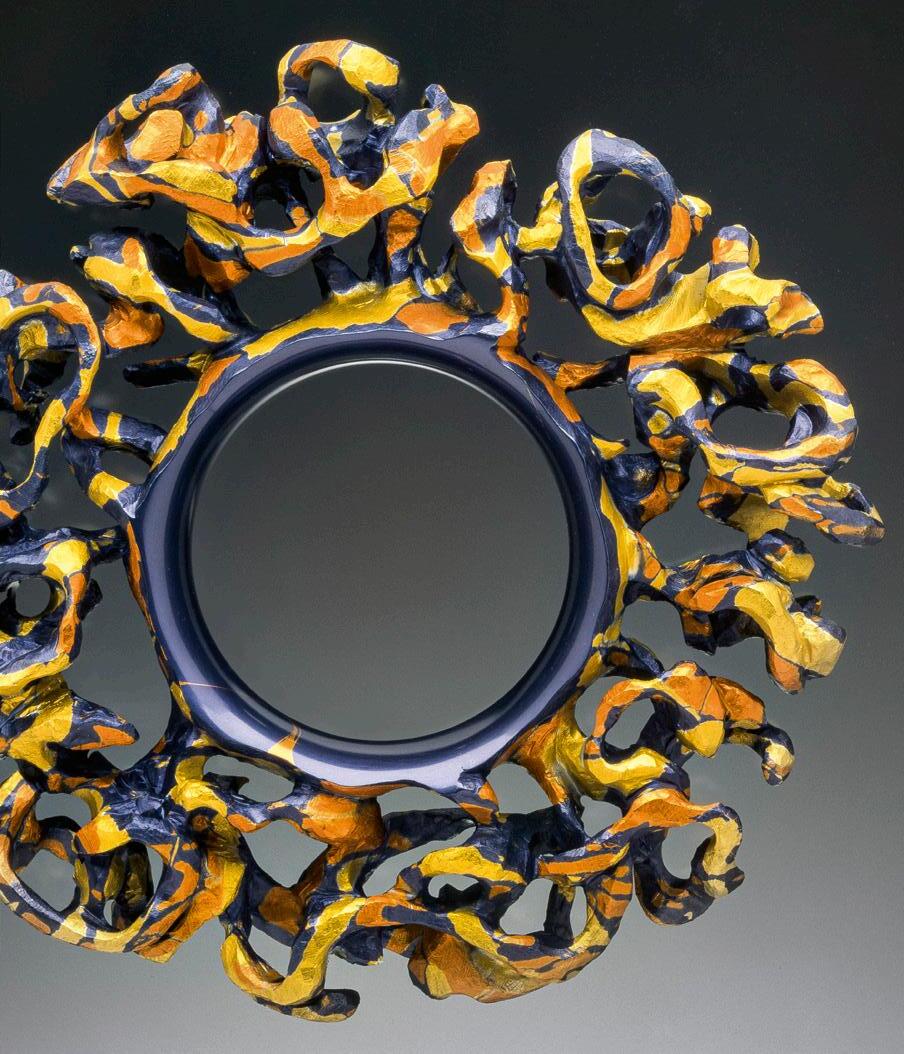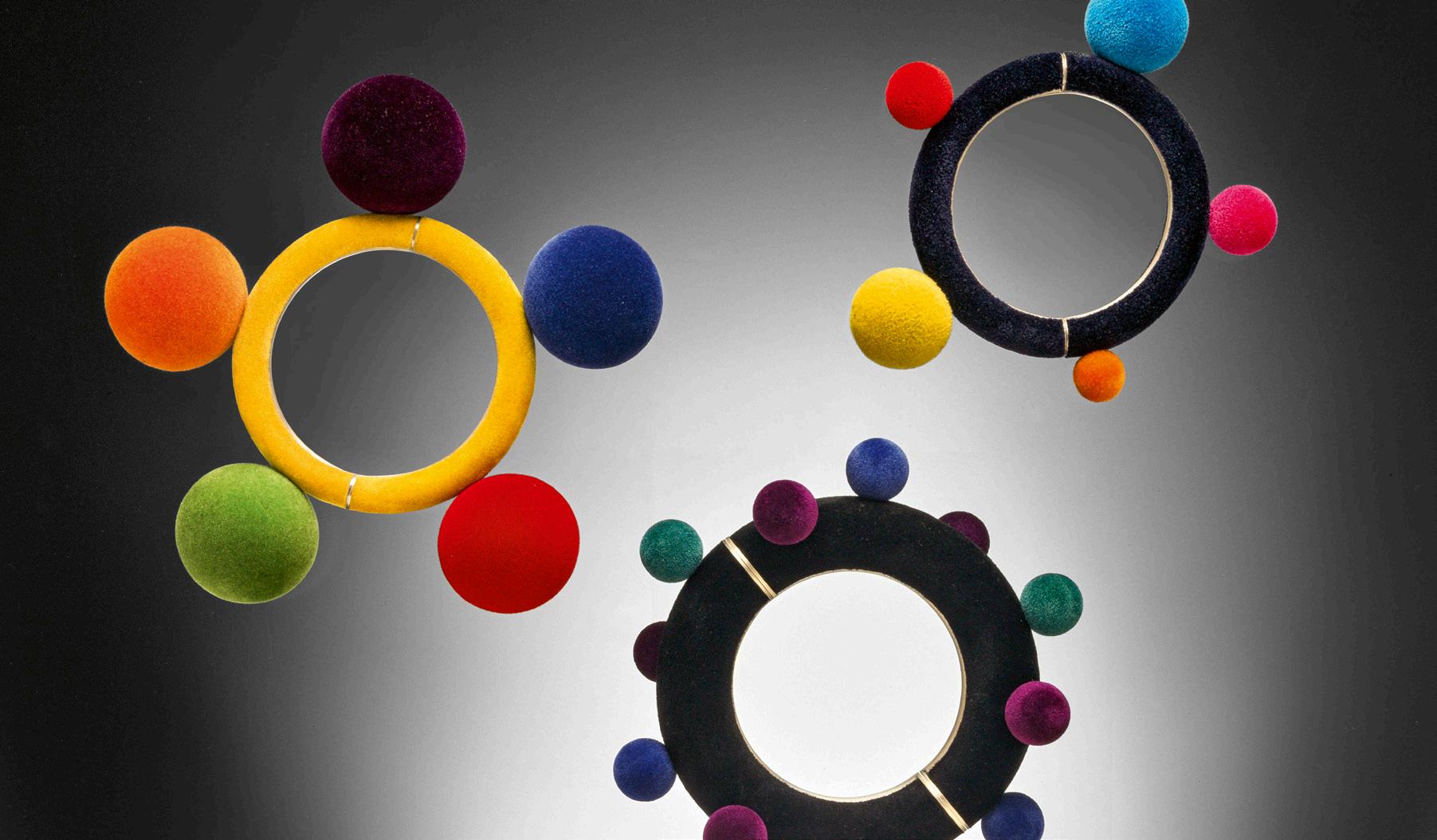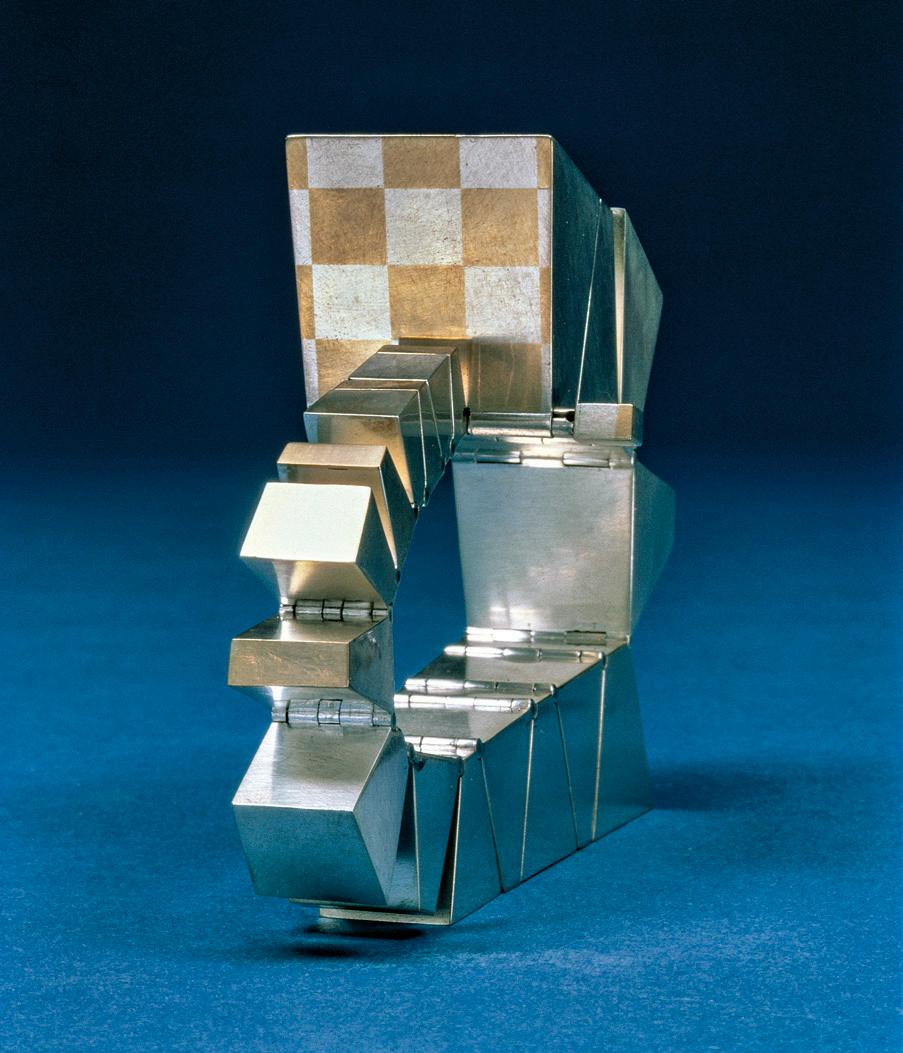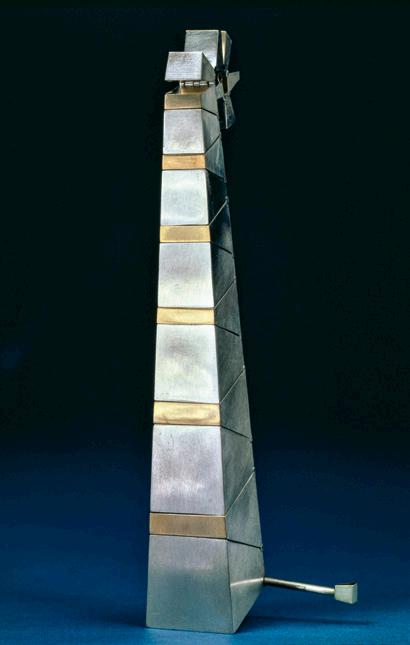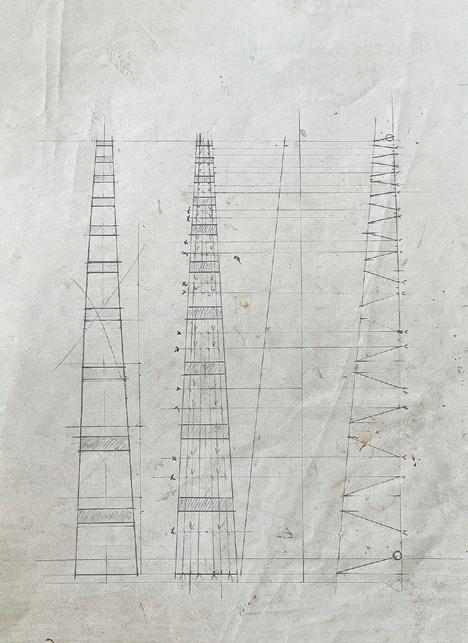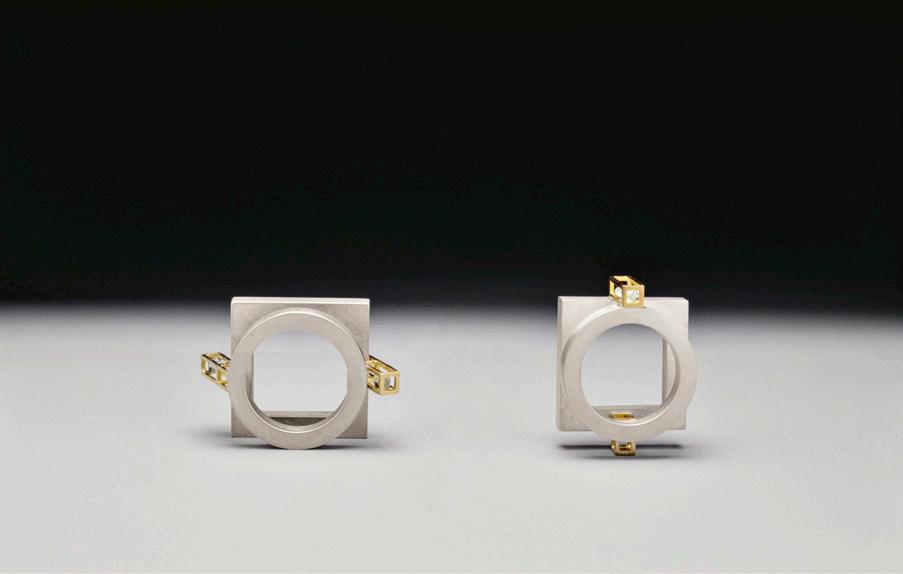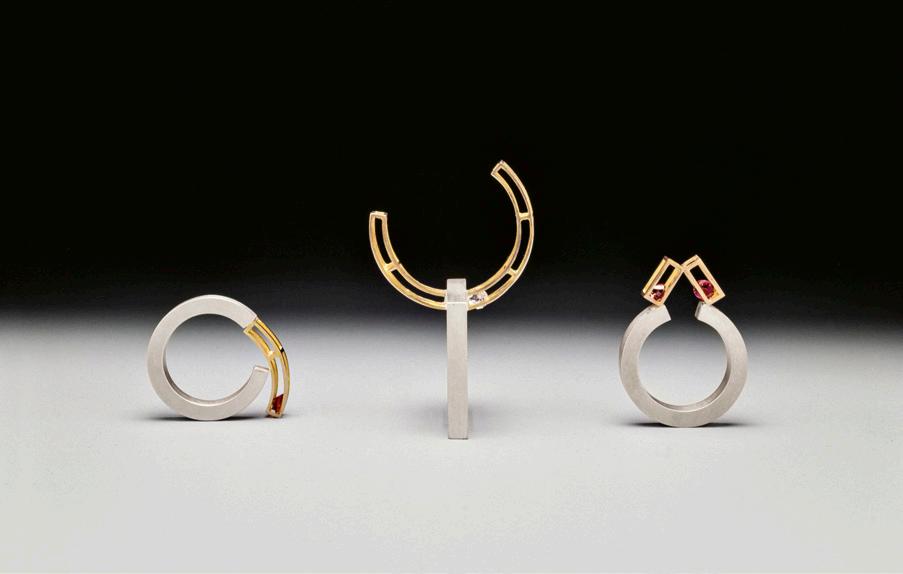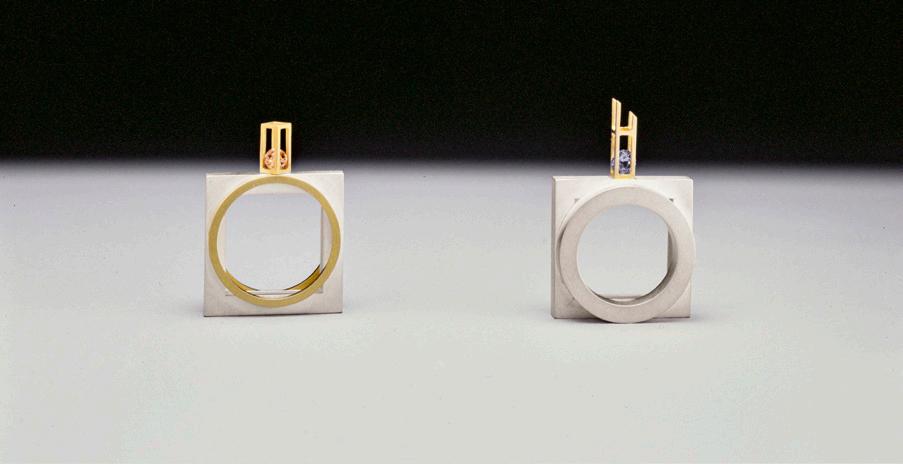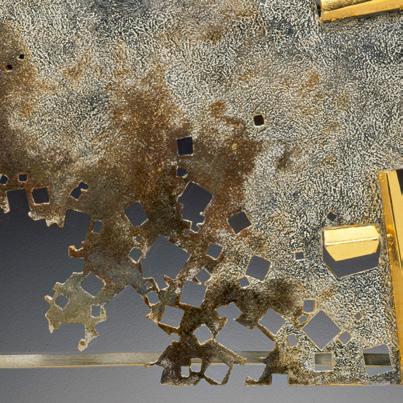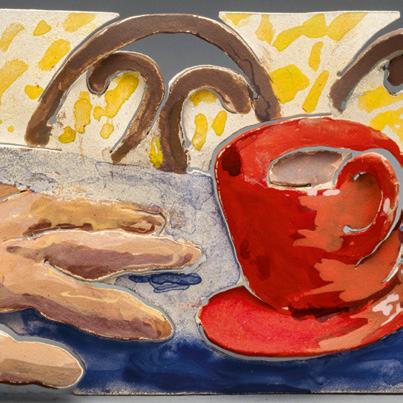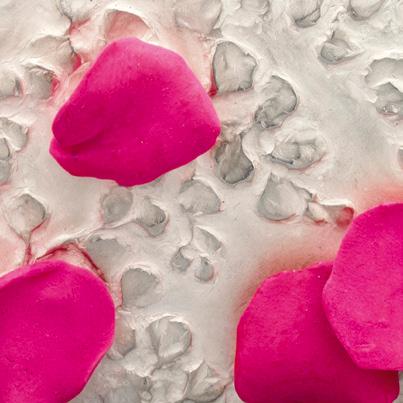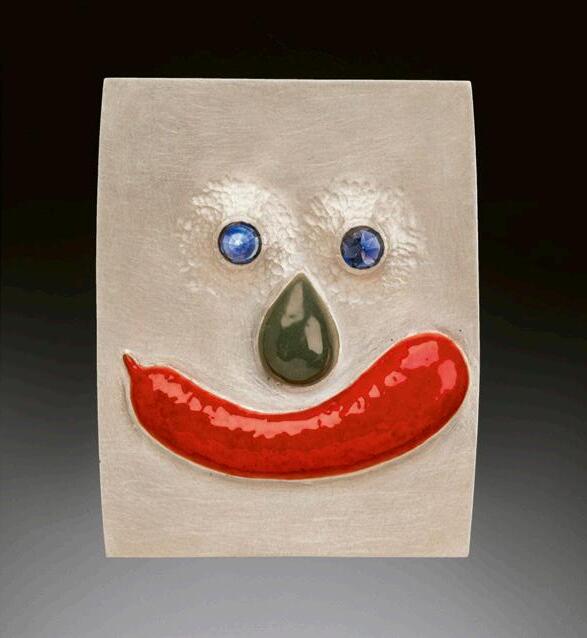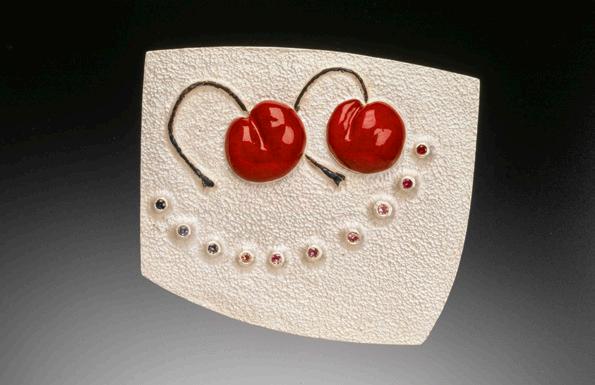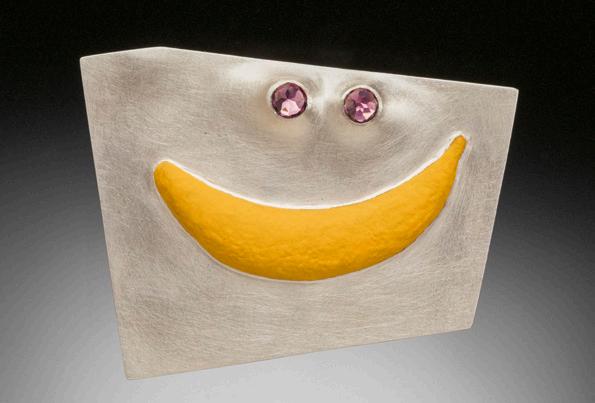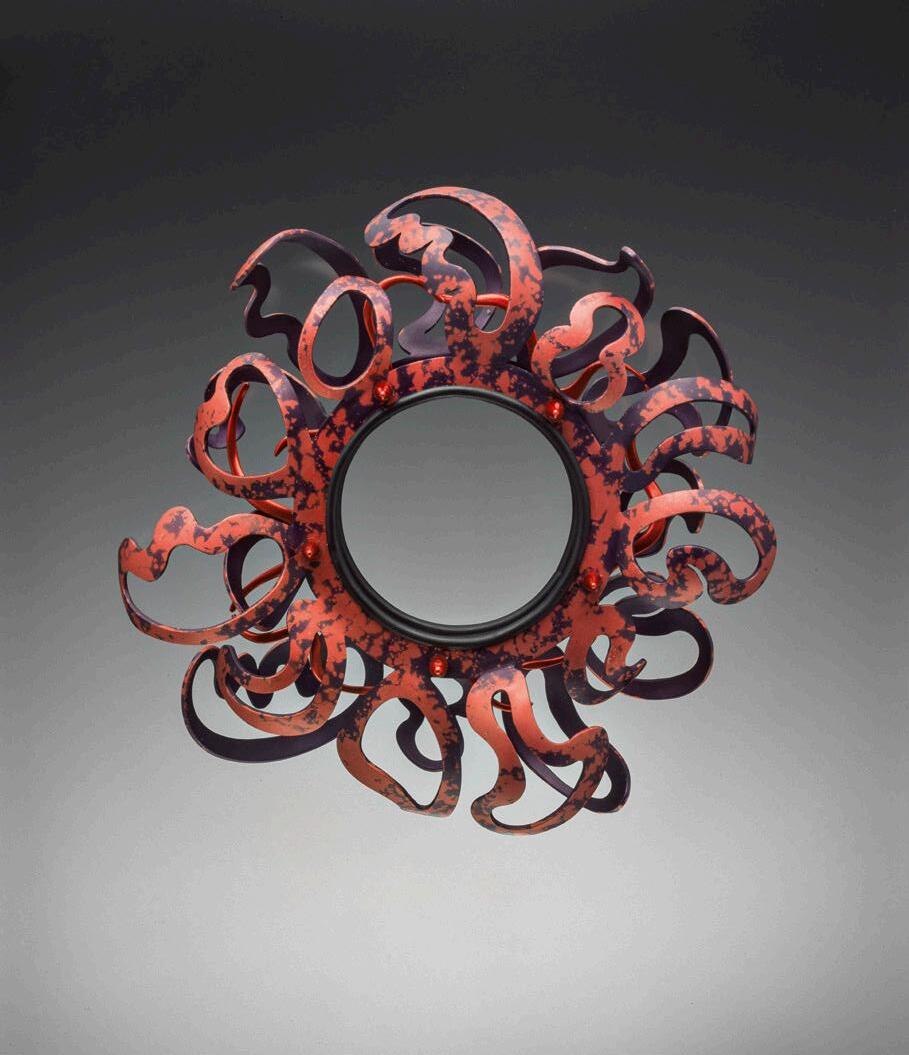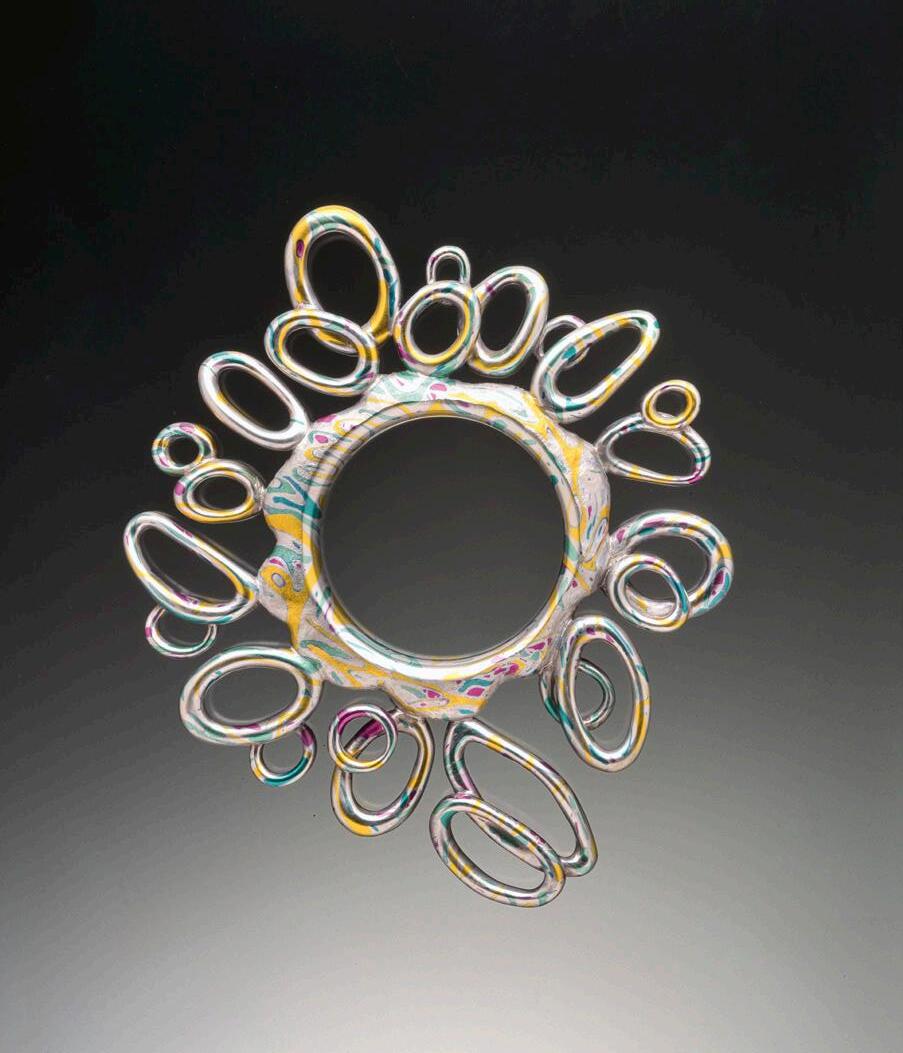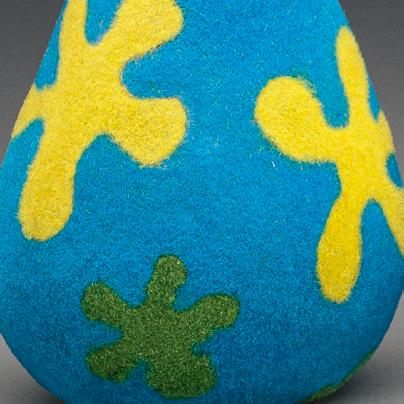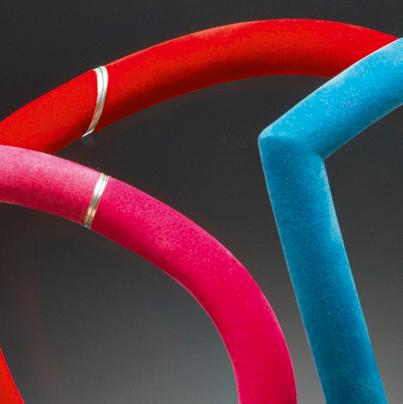Foreword / 7
Susan Grant Lewin
A Touch with the Trickster Sublime: Daniel Jocz’s Artistic Provocation / 9
Wendy Steiner
Boston Metals: Making the Scene / 17
Patricia Harris and David Lyon
“I Never Refused a Muse”: The Art of Daniel Jocz / 29
Jeannine Falino
Catalogue of Works / 39
Sculptural Concerns / 41
Telling Tales / 81
Carving, Bending, Flocking: Aluminum Three Ways / 115 Series of Dreams / 137
Candy Wear / 153
American Riff on the Millstone Ruff / 169
Ripping, Shredding, Spraying / 183
Notes to Plates / 204
Daniel Jocz
Acknowledgments / 207
Museum Collections / 207
Artists of the Boston Metals Scene / 207
STICKS , necklace (p. 42)
Boston Metals: Making the Scene
Sometimes timing is everything. Daniel Jocz knew nothing about the Boston art scene — or even if there was one when he hitchhiked across the country from Oakland, California in the mid-1970s. The young sculptor had just finished a stint working for a Bay Area foundry. His transcontinental drift landed him in Boston to meet up with friends. He had no idea that he was about to be part of something big.
Unless you have the power and resources of Lorenzo Medici, it is impossible to will an artistic renaissance into being. The process is far more random. Art scenes flourish in the wake of fortuitous convergences of talent on fertile soil. In the mid1970s, Boston was poised for a creative breakout. The city was hardly alone. Thanks in part to the increasing presence of artists in professional academic programs, American culture was realigning how studio crafts were regarded. The emergence of the concept of “art in craft media” led to a blurring of the old (and arguably artificial) lines between craft and art.
Jocz was attuned to the evolving zeitgeist. Although still working in sculpture, he had made his first forays into jewelry. He reached a turning point in 1977 a kind of prolonged “aha!” moment when he began working with Boston jeweler Joan Carriere. He discovered that jewelry could expand the ideas he had been exploring in large-scale metal sculpture. “She convinced me that I could work out my ideas in miniature,”1 he recalls.
He was not the only one thinking that way. In the absence of a guild system that had ruled crafts from medieval times to the eighteenth century, artisans including metalsmiths began clamoring for equal status with fine arts. The formation of the Society of North American Goldsmiths (SNAG) in 1969 was the first step toward the recognition of “designer craftsmen in the metal arts field,” as the charter noted. Beginning in 1973, a sequence of SNAG journals led to the creation of the influential magazine Metalsmith in 1980.
An elevated regard for metalsmithing was a natural fit in Boston, where the tradition stretched back past Paul Revere. In his own time, Revere was as well-known as a silversmith and foundry operator as he was as a patriot and rabble-rouser. In the century after the American Revolution, Boston’s moneyed class had the taste and
1 Except where noted in the text, all quotations come from interviews conducted between 2019 and 2021.
Patricia Harris and David Lyon
TELLING TALES
ZUCCHINI LIPS , CHERRY EYES , and BANANA FACE , brooches, 1997
Fruit Faces series
Silver, enamel, sapphire, amethyst
Opposite bottom: Racine Art Museum, Racine, WI
Three Ways
Carving, Bending, Flocking: Aluminum
DANCE , bracelet, 2005
Aluminum Three Ways series
Anodized aluminum
BUBBLE BATH , bracelet, 2004 Aluminum Three Ways series Anodized aluminum
CANDY WEAR
FIRE WATER , collar, 2007
American Riff on the Millstone Ruff series
Aluminum, copper, lacquer, chrome
Private collection
Overleaf: On model
American Riff on the Millstone Ruff
© 2022 Daniel Jocz, Susan Grant Lewin, Wendy Steiner, Patricia Harris, David Lyon, Jeannine Falino, and Sarah Davis; arnoldsche Art Publishers, Stuttgart
All rights reserved. No part of this work may be reproduced or used in any form or by any means (graphic, electronic or mechanical, including photocopying or information storage and retrieval systems) without written permission from the copyright holders. www.arnoldsche.com
Editor: Sarah Davis
Authors: Susan Grant Lewin, Wendy Steiner, Patricia Harris, David Lyon, and Jeannine Falino
Graphic designer: Wilcox Design
Copy editing: Wendy Brouwer, Stuttgart
Offset reproductions: Schwabenrepro, Fellbach
Printed by: Schleunung Druck, Marktheidenfeld
Bound by: Hubert & Co., Göttingen
Paper: 170 g/qm Magno Satin
arnoldsche project coordination: Julia Hohrein
Bibliographic information published by the Deutsche Nationalbibliothek
The Deutsche Nationalbibliothek lists this publication in the Deutsche Nationalbibliografie; detailed bibliographic data are available at www.dnb.de.
ISBN 978-3-89790-665-5
Made in Europe, 2022
Photo credits: All images courtesy Daniel Jocz studio, except as noted Photographers: George Erml, Casey McNamara, DeCicco, Paul Rocheleau, Dean Powell, Daniel Jocz, Michael Flower (wall panels)
p. 35: Savannah College of Art and Design
pp. 88, top, and 132: The Metropolitan Museum of Art, Gift of Donna Schneier, 2007 (N.A.2007.154a and 2007.384.24) Image © The Metropolitan Museum of Art pp. 134–5: Museum of Fine Arts, Boston. The Daphne Farago Collection, 2017.4929 Photograph © 2022 Museum of Fine Arts, Boston p. 159: Courtesy Ornamentum Gallery pp. 160–1: Cooper Hewitt, Smithsonian Design Museum. Photos: Matt Flynn © Smithsonian Institution p. 164, bottom: Schmuckmuseum, Pforzheim, Germany. Photo: Petra Jaschke
Cover: Hostias, brooch (p. 111)
Back cover: Ribbon, bracelet (p. 123)
Endpapers: Working drawing for Sticks, necklace (p. 42)
Page 2: Medusa, bracelet (p. 125)
Page 4: Line Logic, bracelet (p. 46)
